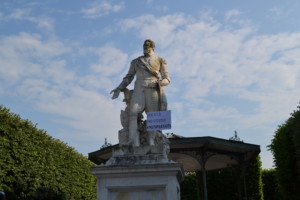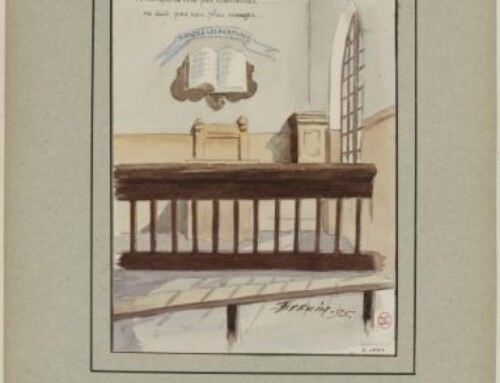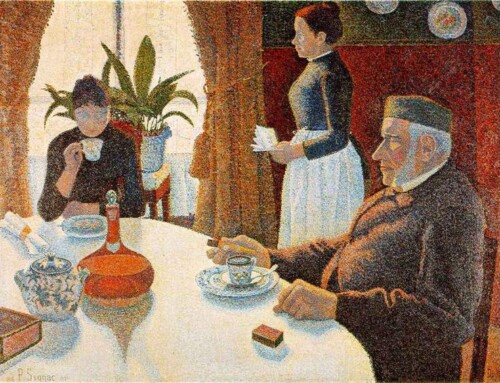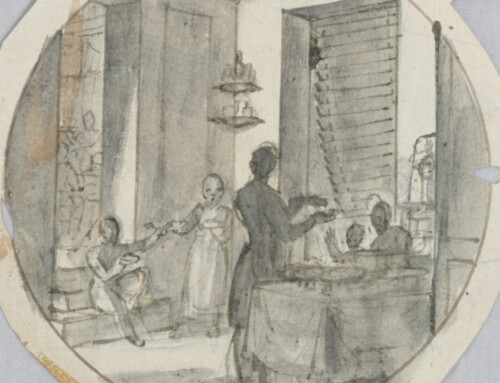For what cause or reason might someone go on a hunger strike?
- In 1966 Pierre Vallières (1938-1998) and Charles Gagnon (1939-2005) held a hunger strike in front of the United Nations in New York City to protest Canada’s treatment of imprisoned FLQ members (Front de libération du Québec), bringing international attention to Québec’s struggle for independence.
- In an interview for the website Île en île, the linguist, educator, politician, translator, poet, and dramatist Dev Virahsawmy (born 1942) said that while imprisoned (1972) in Mauritius for having been part of a strike, he wanted to write but was denied paper and pencil. He decided to go on a hunger strike in order to obtain those materials and then wrote in Creole.
- In February 1980 a hunger strike was started by Turkish garment workers in Paris — their main goal was to obtain legalization of their immigration status. The strike took place after a documentary revealed the bad working conditions and low pay of tens of thousands of illegal garment workers in Paris. The strikers received support from the Paris-area Confédération française démocratique du Travail and from the Turkish ambassador Hamit Batu. The Secretary of State for Immigration, Lionel Stoléru, agreed to look at legalization applications case by case for workers who arrived before July 1976 and whose employers paid the recruitment fee to the Office national d’immigration. This strike in Paris inspired eleven Turkish garment workers in Clermont-Ferrand to go on a similar hunger strike.
- In the novel Loin de Médine : Filles d’Ismaël (1991) by Assia Djebar (1936-2015), the character Esma says at one point that she will neither eat nor drink until the Prophet hears what she has to say about the suffering of people who have been in danger (216-217). The name Esma is a variation of Isma, which Assia Djebar uses when expressing views that are rather autobiographical in fictional works, according to a 1997 television interview that she gave.
- The American dancer Katherine Dunham (1909-2006) held a 47-day hunger strike in 1992 to protest the US government’s treatment of Haitian refugees.
- In 2015 the journalist and politician Dàvid Grosclaude (born 1958) went on a hunger strike, because he wanted the French government to recognize the Ofici Public de la Lenga Occitana, which advocates for public usage of the Occitan language.
▀▄▀▄▀▄

Occitan : L’estatua d’Enric IV, a Pau, amb una pancarta “Que n’i a pro d’estar mespresats” au parat d’ua manifestacion de sostien a la cauma de la hami de David Grosclaude. Français : La statue d’Henri IV, à Pau, avec une pancarte “Que n’i a pro d’estar mespresats” (il y en a assez d’être méprisés) à l’occasion d’une manifestation de soutien à la grève de la faim de David Grosclaude. English: Henri IV statue, in Pau, wearing a placard “Que n’i a pro d’estar mespresats” (Enough of being despised) during a protest to support David Grosclaude’s hunger strike. 2015. Image via Wikimedia Commons. Attribution: Unuaiga [CC BY-SA 4.0 (https://creativecommons.org/licenses/by-sa/4.0)]. → https://commons.wikimedia.org/wiki/File:Henri_IV_-_Que_n%27i_a_pro_d%27estar_mespresats.JPG
▀▄▀▄▀▄
References & Suggested Reading
Benoit, Jean. « Des immigrés turcs font la grève de la faim à Paris pour obtenir la régularisation de leur situation ‘Kazanakagiz !’ » Le Monde, 16 février 1980. → https://www.lemonde.fr/archives/article/1980/02/16/des-immigres-turcs-font-la-greve-de-la-faim-a-paris-pour-obtenir-la-regularisation-de-leur-situation-kazanakagiz_3073595_1819218.html
“Dàvid Grosclaude en cauma de la fam.” Jornalet, 27 May 2015. → https://www.jornalet.com/nova/5201/david-grosclaude-en-cauma-de-la-fam
Djebar, Assia. Loin de Médine : Filles d’Ismaël. Paris: A. Michel, 1991.
« ‘French confection’ » : le Sentier (1980). » Les Utopiques (Revue de réflexion éditée par l’Union syndicale Solidaires), 20 January 2019. → www.lesutopiques.org/french-confection-le-sentier-1980/
Gagnon, Charles. Ne dites pas à mon père que je suis québécois, il me croit canadien dans un Québec libre : chroniques perdues et retrouvées d’une décennie morose. Candiac, Québec: Éditions Balzac, 1992.
Galano, Mireille, et Alexis Spire. « ‘French confection’ : le Sentier (1980) », Plein droit, vol. 55, no. 4, 2002, pp. 31-36. → https://www.cairn.info/revue-plein-droit-2002-4-page-31.htm#
Givens, Terri G. “Effects of Migration: Political Parties.” The Oxford Handbook of the Politics of International Migration, edited by Marc R. Rosenblum and Daniel J. Tichenor, Oxford University Press, 2012, pp.153-170.
Hall, Michael R. Historical Dictionary of Haiti. Lanham, Md.: Scarecrow Press, 2012.
“Il y a 42 ans : Li de Dev Virahsawmy embarrasse la censure.” L’Express.mu, 11 February 2019. → https://www.lexpress.mu/article/347550/il-y-42-ans-li-dev-virahsawmy-embarrasse-censure
“Langue occitane : David Grosclaude arrête sa grève de la faim.” Sud Ouest, 4 June 2015. → https://www.sudouest.fr/2015/06/04/langue-occitane-david-grosclaude-arrete-sa-greve-de-la-faim-1941234-4344.php
LaPierre, Laurier L. “White Niggers of America.” The New York Times, 11 April 1971. → https://www.nytimes.com/1971/04/11/archives/white-niggers-of-america-the-precocious-autobiography-of-a-quebec.html
Lapierre, Michel. « ‘Dissident’ : Pierre Vallières, chercheur d’absolu. » Le Devoir, 10 November 2018. → https://www.ledevoir.com/lire/540925/pierre-vallieres-chercheur-d-absolu
Messina, Anthony M., ed. West European Immigration and Immigrant Policy in the New Century. Greenwood Publishing Group, 2002.
Rice, Alison. Time Signatures: Contextualizing Contemporary Francophone Autobiographical Writing from the Maghreb. Lexington Books, 2006.
St. Leger, Rosemary. “Fast Friend.” The Chicago Tribune, 22 March 1992. → https://www.chicagotribune.com/news/ct-xpm-1992-03-22-9201260662-story.html
Vallières, Pierre. Un Québec impossible. Montréal: Éditions Québec/Amérique, 1977.
Virahsawmy, Dev. “Dev Virahsawmy, 5 Questions pour Île en île.” Île en île, 19 June 2009. → https://ile-en-ile.org/dev-virahsawmy-5-questions-pour-ile-en-ile/




